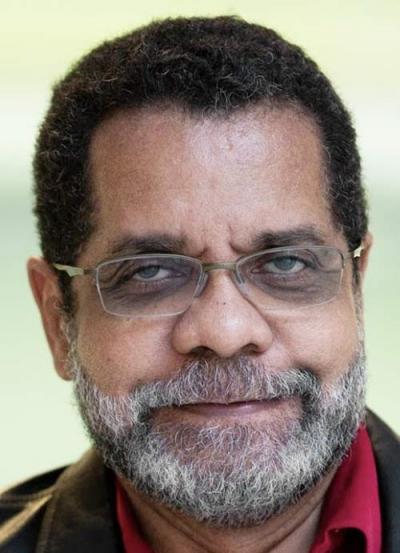

 In April, I published an article, The Multistakeholder Moment of Truth: Will Stakeholders Hold ICANN Accountable?, alerting stakeholders that ICANN is violating its legal agreements with the U.S. Government -- namely the InterNIC licensing agreement and merged Memorandum of Understanding. At that time, I warned that it is essential for stakeholders not to remain silent in the face of this transgression, "hoping that such behavior left unchecked will end of its own accord."
In April, I published an article, The Multistakeholder Moment of Truth: Will Stakeholders Hold ICANN Accountable?, alerting stakeholders that ICANN is violating its legal agreements with the U.S. Government -- namely the InterNIC licensing agreement and merged Memorandum of Understanding. At that time, I warned that it is essential for stakeholders not to remain silent in the face of this transgression, "hoping that such behavior left unchecked will end of its own accord."
 In recent times, groups of people gather at the ITU in Geneva and write a "strategic plan" covering the next few years. Indeed, there is a current questionnaire to that effect. It is frozen in a world that existed 30 years ago, and by any measure, surreal and absurd. It needs to be terminated. Here is why. The International Telecommunication Union (ITU) has existed in various forms since 1850 to perform two basic functions.
In recent times, groups of people gather at the ITU in Geneva and write a "strategic plan" covering the next few years. Indeed, there is a current questionnaire to that effect. It is frozen in a world that existed 30 years ago, and by any measure, surreal and absurd. It needs to be terminated. Here is why. The International Telecommunication Union (ITU) has existed in various forms since 1850 to perform two basic functions.
 It was on the cards. For weeks, Jack Ma, the digital tycoon of China, founder of Ant and of e-commerce giant Alibaba (the Chinese Amazon), disappeared off the radar after he was summoned by the Chinese Government and most likely lectured on the fact that his company was out of step with official Chinese policy. Consequently, the Government levied a multi-billion dollar antitrust fine against Alibaba, deleted its popular web browser from app stores and took several other actions against the company.
It was on the cards. For weeks, Jack Ma, the digital tycoon of China, founder of Ant and of e-commerce giant Alibaba (the Chinese Amazon), disappeared off the radar after he was summoned by the Chinese Government and most likely lectured on the fact that his company was out of step with official Chinese policy. Consequently, the Government levied a multi-billion dollar antitrust fine against Alibaba, deleted its popular web browser from app stores and took several other actions against the company.
 In an earlier post, I looked at the use of the Internet by anti-government protesters last month and the government's attempt to block them. Now, a few weeks later, let's see how the Internet changed after my July 18 post. The protesters used messaging and social media services, which the government tried to block, and posted images and videos of protests around the island.
In an earlier post, I looked at the use of the Internet by anti-government protesters last month and the government's attempt to block them. Now, a few weeks later, let's see how the Internet changed after my July 18 post. The protesters used messaging and social media services, which the government tried to block, and posted images and videos of protests around the island.
 As we face another surge in the Delta variant within the COVID-19 pandemic, the traditional face-to-face schools of Internet Governance continue to be forced to rethink their typical programs and adapt their modalities of delivering Internet Governance education. Everyone from the administrators, educators and the participants needed to adapt to the new reality of online learning and the various digital platforms with its associated cost and benefits.
As we face another surge in the Delta variant within the COVID-19 pandemic, the traditional face-to-face schools of Internet Governance continue to be forced to rethink their typical programs and adapt their modalities of delivering Internet Governance education. Everyone from the administrators, educators and the participants needed to adapt to the new reality of online learning and the various digital platforms with its associated cost and benefits.
 Technical management of the Internet was delegated to ICANN by the U.S. government because it was believed that the private sector would be more agile and responsive to the needs of globally distributed stakeholders. However, this optimism and the faith it has produced has proven to be misplaced since ICANN's multi-stakeholder governance continues falling far short of the basic expectations set when it was created.
Technical management of the Internet was delegated to ICANN by the U.S. government because it was believed that the private sector would be more agile and responsive to the needs of globally distributed stakeholders. However, this optimism and the faith it has produced has proven to be misplaced since ICANN's multi-stakeholder governance continues falling far short of the basic expectations set when it was created.
 As a result of Internet service interruption during the recent anti-government protests in Cuba, Florida Senator Rubio and Governor DeSantis and President Biden have called for measures to strengthen and guarantee Cuban Internet connectivity, but that won't happen until the Cuban government recognizes that doing so is in its long-run interest. I have seen several suggestions that we smuggle end-user satellite terminals from services like SpaceX Starlink into Cuba but attempts to...
As a result of Internet service interruption during the recent anti-government protests in Cuba, Florida Senator Rubio and Governor DeSantis and President Biden have called for measures to strengthen and guarantee Cuban Internet connectivity, but that won't happen until the Cuban government recognizes that doing so is in its long-run interest. I have seen several suggestions that we smuggle end-user satellite terminals from services like SpaceX Starlink into Cuba but attempts to...
 On Sunday, July 11, thousands of Cubans, took to the streets in anti-government protests triggered by COVID, the faltering economy, and an overwhelmed healthcare system. In three days, 110 protests took place across the island. The following is a snapshot of an interactive, crowd-sourced map showing the locations of 118 large and small demonstrations (94 reported on the 11th, 14 on the 12th, seven on the 13th and three on the 17th).
On Sunday, July 11, thousands of Cubans, took to the streets in anti-government protests triggered by COVID, the faltering economy, and an overwhelmed healthcare system. In three days, 110 protests took place across the island. The following is a snapshot of an interactive, crowd-sourced map showing the locations of 118 large and small demonstrations (94 reported on the 11th, 14 on the 12th, seven on the 13th and three on the 17th).
 During ICANN71, the Brand Registry Group (BRG) openly asked potential future applicants what ICANN can do to help prepare them for the next gTLD round. The answer was very clear - commit to opening the next round and provide as much information as possible early on. However, in recent correspondence to the BRG from ICANN Chair, Maarten Botterman, he emphasized that "significant work lies ahead of us: the 2012 Applicant Guidebook must be updated with more than 100 outputs...
During ICANN71, the Brand Registry Group (BRG) openly asked potential future applicants what ICANN can do to help prepare them for the next gTLD round. The answer was very clear - commit to opening the next round and provide as much information as possible early on. However, in recent correspondence to the BRG from ICANN Chair, Maarten Botterman, he emphasized that "significant work lies ahead of us: the 2012 Applicant Guidebook must be updated with more than 100 outputs...
 On May 26, 2021, I submitted a complaint to ICANN's Complaints Officer, Krista Papac. In a nutshell, my complaint centers on ICANN's blatant violation of its Bylaws, specifically Section 2.2, named Restrictions, which expressly prohibits ICANN from acting as a registrar. However, despite the absence of any exceptions to this unambiguous prohibition, ICANN is acting improperly as a registrar for the purposes of warehousing and cybersquatting on certain domain names in the .com and .net registries.
On May 26, 2021, I submitted a complaint to ICANN's Complaints Officer, Krista Papac. In a nutshell, my complaint centers on ICANN's blatant violation of its Bylaws, specifically Section 2.2, named Restrictions, which expressly prohibits ICANN from acting as a registrar. However, despite the absence of any exceptions to this unambiguous prohibition, ICANN is acting improperly as a registrar for the purposes of warehousing and cybersquatting on certain domain names in the .com and .net registries.